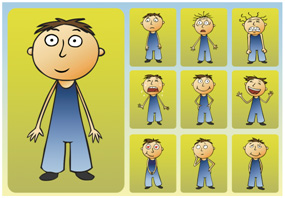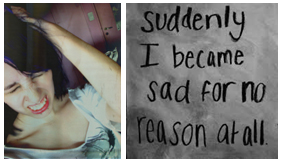 Sometimes just seems so much easier to simply let things go rather than put up with all the drama and tantrums of the teenage years, when it seems like the littlest thing can bring on a fight. But it is a parent’s job to be the bad guy. When parents sidestep that role kids feel insecure and uncared for.
Sometimes just seems so much easier to simply let things go rather than put up with all the drama and tantrums of the teenage years, when it seems like the littlest thing can bring on a fight. But it is a parent’s job to be the bad guy. When parents sidestep that role kids feel insecure and uncared for.
“My parents give me a curfew but don’t bother to enforce it, which makes me feel like they really don’t care, like they’ve tuned me out for the night…”
There are many examples of parents taking the easy way out instead of performing their parental duties. My friend liked to go to bed at nine o’clock each evening and swore she couldn’t stay awake beyond nine no matter how hard she tried. So when her teenage daughter assured her mother in the morning that she indeed was in by her 11pm curfew, my friend totally believed. After all, her daughter was such a good kid – what’s not to be believed?
The same friend did not trust her son to be as responsible as his sister, so when he was a teen she told him to wake her up when he got home so she would know that he met his curfew. Many times he claimed to have woken her when he arrived home exactly on time, but she must’ve forgotten him doing so, as she fell back asleep. “Did I say anything when you came in?” “Yup you asked me if I had a good time” and other imaginary dialogue along those lines.
Teenagers want their parents to be in charge and lose respect for their parents who aren’t and later discount their authority when they try to exert it.
“My parents always give in so easily. They say ‘you’re grounded,’ and then they forget, so I never take them seriously, and laugh about them behind their backs.”
Sound like anything you may have done, or what you heard your teenage friends say about their parents? Worse, are you that parent?
How about this situation: you want to drop your tween off for the first day of summer day camp and he pitches a fit and refuses to cooperate, begging you to take him to your work instead. Not wanting to make a scene, and furious about the whole thing, still not willing to create more upheaval, you give in and bring him to work with you. What does the child learn? He learns that he, not you, is in charge.
When a child has the ability to control the parent’s actions (and emotions) it actually upsets him because his world is now less secure. Children look to their parents to bring some order to the chaos of life that they are trying to make sense of in the growing up process. When the response is that the child is really in control because the parent has vacated their responsibility, that knowledge makes the child’s inner chaos even worse.
COMMUNICATION TAKEAWAY: Many parents have busy schedules, limited knowledge of how to parent with only their own example to go by, and general insecurities about their parenting skills. This is compounded when life speeds up during the more complicated adolescent years and there’s little time to get the assistance or support to help. “It’s really not such a big deal, is it? This too will pass if I can just hang on to these years” – and so giving up seems like a viable and easy way out. This disservice to your child makes it harder for them who are living through it to get by whole, without your guidance and assistance. They need the authority and discipline that you provide. Hang in there and don’t give up on them, knowing that you’re doing the right thing to persist, even if it takes every drop of your energy to do so.









